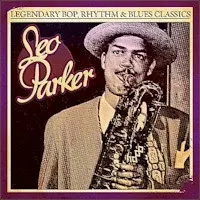Styles: Trumpet Jazz
Year: 1991
File: MP3@320K/s
Time: 70:54
Size: 166,1 MB
Art: Front
(2:53) 1. Dance Of The Infidels
(2:49) 2. 52nd St. Theme
(5:34) 3. Double Talk
(2:35) 4. Move
(2:41) 5. Hollerin' And Screamin'
(2:54) 6. The Tadd Walk
(3:09) 7. Jumpin' For Jane
(2:50) 8. Lady Bird
(2:53) 9. Goin' To Minton's
(2:45) 10. Nostalgia
(2:25) 11. Eb Pob
(2:59) 12. Our Delight
(3:16) 13. Bouncing With Bud
(3:04) 14. Wail
(3:05) 15. Symphonette
(3:07) 16. Boperation
(2:49) 17. Fats Blows
(4:02) 18. Stop
(2:52) 19. Sid's Delight
(2:53) 20. Jahbero
(2:57) 21. The Skink
(2:59) 22. The Squirrel
(3:13) 23. Groovin' High
Fats Blows 1946-1949
Year: 1991
File: MP3@320K/s
Time: 70:54
Size: 166,1 MB
Art: Front
(2:53) 1. Dance Of The Infidels
(2:49) 2. 52nd St. Theme
(5:34) 3. Double Talk
(2:35) 4. Move
(2:41) 5. Hollerin' And Screamin'
(2:54) 6. The Tadd Walk
(3:09) 7. Jumpin' For Jane
(2:50) 8. Lady Bird
(2:53) 9. Goin' To Minton's
(2:45) 10. Nostalgia
(2:25) 11. Eb Pob
(2:59) 12. Our Delight
(3:16) 13. Bouncing With Bud
(3:04) 14. Wail
(3:05) 15. Symphonette
(3:07) 16. Boperation
(2:49) 17. Fats Blows
(4:02) 18. Stop
(2:52) 19. Sid's Delight
(2:53) 20. Jahbero
(2:57) 21. The Skink
(2:59) 22. The Squirrel
(3:13) 23. Groovin' High
A 23-track overview of Fats' brief moments of brilliance in the jazz skyline. The groups are varied, as was Navarro's wont, featuring such luminaries as Eddie "Lockjaw" Davis, Tadd Dameron, Leo Parker, Art Blakey, Howard McGhee, Bud Powell, Sonny Rollins, Kenny Clarke, Milt Jackson, and Fats' idol, Charlie Parker. Navarro was a brilliant musician, done in by drugs and tuberculosis. This disc gives you an idea of how tragic his loss was to the jazz world. ~ Cub Koda http://www.allmusic.com/album/fats-blows-1946-1949-mw0000051021
Personnel includes: Fats Navarro (trumpet); Leo Parker (alto & baritone saxophones); Charlie Parker, Ernie Henry, Budd Johson, Sahib Shihab, Ernie Henry (alto saxophone); Eddie Davis, Charlie Rouse, Don Lamphere, Allen Eager, Coleman Hawkins, Dexter Gordon, Sonny Rollins, Wardell Gray (tenor saxophone); Cecil Payne, Marion De Veta (baritone saxophone); Howard McGhee (trumpet); Kai Winding (trombone); Milt Jackson (vibraphone); Al Haig, Tadd Dameron, Lennie Tristano, Linton Garner, Bud Powell (piano); Huey Long, Billy Bauer, Chuck Wayne (guitar); Gene Ramey, Curley Russell, Nelson Boyd, Tommy Potter, Jimmy Johnson, Jack Lesberg (bass); Denzil Best, Kenny Clarke, Art Blakey, Shadow Wilson, Buddy Rich, Max Roach, Roy Haynes (drums); Chano Pozo, Diego Ibarra (bongos); Vidal Bolado (conga).
Personnel includes: Fats Navarro (trumpet); Leo Parker (alto & baritone saxophones); Charlie Parker, Ernie Henry, Budd Johson, Sahib Shihab, Ernie Henry (alto saxophone); Eddie Davis, Charlie Rouse, Don Lamphere, Allen Eager, Coleman Hawkins, Dexter Gordon, Sonny Rollins, Wardell Gray (tenor saxophone); Cecil Payne, Marion De Veta (baritone saxophone); Howard McGhee (trumpet); Kai Winding (trombone); Milt Jackson (vibraphone); Al Haig, Tadd Dameron, Lennie Tristano, Linton Garner, Bud Powell (piano); Huey Long, Billy Bauer, Chuck Wayne (guitar); Gene Ramey, Curley Russell, Nelson Boyd, Tommy Potter, Jimmy Johnson, Jack Lesberg (bass); Denzil Best, Kenny Clarke, Art Blakey, Shadow Wilson, Buddy Rich, Max Roach, Roy Haynes (drums); Chano Pozo, Diego Ibarra (bongos); Vidal Bolado (conga).
Fats Blows 1946-1949








